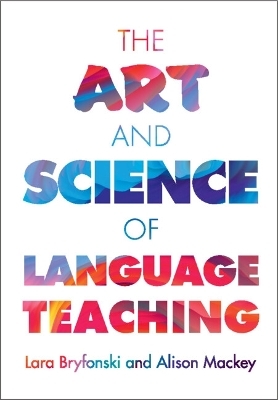
The Art and Science of Language Teaching
Cambridge University Press (Verlag)
978-1-108-83779-8 (ISBN)
This user-friendly book is designed for language teachers of all levels and languages who seek to inform their classroom practices with current research findings on second language acquisition. Ideal for courses on second language learning and teaching, teacher reading groups, and professional development workshops, each chapter begins with a story of a real teaching scenario and a concise summary of what cutting-edge language teaching research says (and what it does not say) about the topic. Throughout the twenty-one chapters, the authors connect language research to the classroom, challenge misunderstandings around language pedagogy, and provide solutions. Each chapter concludes with classroom activities, and instructional strategies that can be used immediately in professional development workshops or in the classroom. Additional resources are available online to supplement the activities found in the book. Applicable across all languages and levels, this book is suitable for teachers of diverse backgrounds teaching in diverse contexts.
Lara Bryfonski is an assistant professor of linguistics at Georgetown University. She has published and presented her research on a variety of topics in second language acquisition, including task-based language teaching, corrective feedback, materials development, language learning in study abroad, and methods for second language research. Her publications appear in journals such as the Annual Review of Applied Linguistics, Language Teaching Research, the Modern Language Journal, and Studies in Second Language Acquisition, as well as a variety of edited collections. She is a former ESL/EFL teacher and an experienced teacher trainer and has worked with NGOs in Latin America, public and private schools in the US, governmental and financial organizations, and universities to provide research-based training in language teaching. Alison Mackey is a tenured full professor and Chair of the Department of Lingusitics at Georgetown University (with an additional professorial appointment at Lancaster University in the UK during summers), and an expert in both general second language research and language research methodology. She has published over 100 journal articles and book chapters, and books in total, including the Mildenberger Prizewinning The Routledge Handbook of Second Language Acquisition (2012). She is editor-in-chief of Annual Review of Applied Linguistics, a co-founder and developer of the open-access Instruments for Second Language Research database, and, for the last two decades, co-editor of Routledge's Second Language Acquisition Research series. She has received both of Georgetown University's top honors: the President's Award for Distinguished Scholar-Teachers and the Provost's Career Research Achievement Award. She has also received the Distinguished Scholarship and Service Award from the American Association of Applied Linguistics (2021), and the Distinguished Research Award from the International Task-Based Language Teaching Association (2022). She is one of the top-cited scholars internationally in applied linguistics.
Preface; Acknowledgments; Note on Terminology; Pre-Reading Self-Assessment; Part I. Teacher and Student Talk; 1. How do I get my learners to start and stay talking in the second language?; 2. How do I maximize input in the second language?; 3. Why, when, and how (much) should I correct my learners?; 4. How do I promote peer interaction in the classroom?; 5. What kinds of learning strategies can I teach my learners?; Part II: Differentiation; 6. How does language learner identity influence the language learning experience?; 7. How do I best support neurodiverse language learners?; 8. How do learners' motivation and anxiety levels impact their language learning experience?; 9. How can aptitude be leveraged for language learning?; 10. It's much harder to learn (and teach) my language compared to other languages, and it takes much longer. How can I compensate for these difficulties with my learners?; Part III. Teaching the Skills; 11. How or when should I teach grammar?; 12. Is there a best way to teach pronunciation?; 13. How can I incorporate literacy skills in the target language?; 14. When or how should I teach vocabulary?; 15. What are some strategies for teaching learners about politeness, register, or other pragmatic skills in the second language?; Part IV. Lesson and Unit Planning; 16. What are some of the most popular language teaching methods?; 17. Content, form, and activities: how do I select activities, tasks, and projects?; 18. Menus and maps: how can I make my classroom more authentic in terms of materials and practices?; 19. How could/should I best use technology in the language classroom?; 20. How do I assess language learning?; 21. How can I make the most of professional development opportunities for language teachers?; Glossary; References and resources; Index
| Erscheinungsdatum | 22.12.2023 |
|---|---|
| Zusatzinfo | Worked examples or Exercises |
| Verlagsort | Cambridge |
| Sprache | englisch |
| Maße | 183 x 261 mm |
| Gewicht | 870 g |
| Themenwelt | Geisteswissenschaften ► Sprach- / Literaturwissenschaft ► Sprachwissenschaft |
| Sozialwissenschaften ► Pädagogik | |
| ISBN-10 | 1-108-83779-4 / 1108837794 |
| ISBN-13 | 978-1-108-83779-8 / 9781108837798 |
| Zustand | Neuware |
| Informationen gemäß Produktsicherheitsverordnung (GPSR) | |
| Haben Sie eine Frage zum Produkt? |
aus dem Bereich


